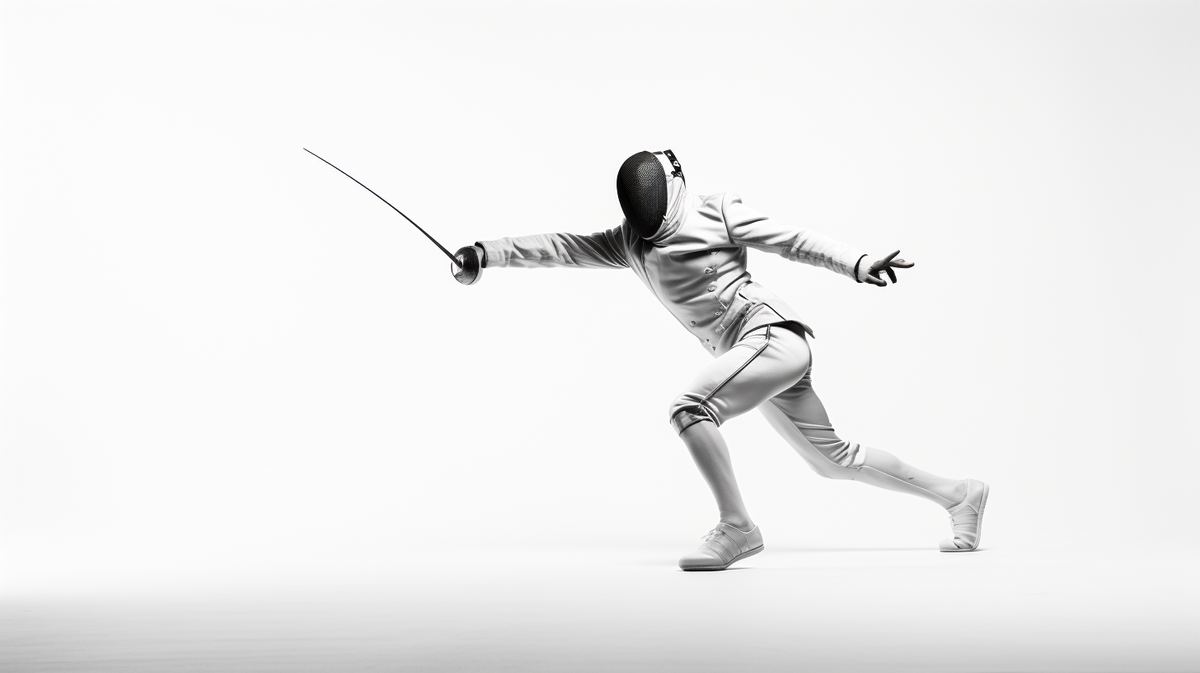What Is Brain Endurance Training (BET) and Why Is Everyone Talking About It?
Brain Endurance Training (BET) is a method of training the brain to handle more fatigue, or expand is capacity for fatigue.

How to get your head around the science and the best explanation you'll find on the internet.
Now fast becoming a buzz word in sports, BET or Brain Endurance Training is taking hold. Although there are years of research behind it, even top sporting professionals are struggling to grasp the concept and how it truly helps to improve physical performance.
What Exactly Is BET?
First, Brain Endurance Training (BET) is a cognitive training method. That is all it is. It is not a belief system or a mythical concept, in fact it is well studied and documented to work. Brain Endurance Training (BET) is a method of training the brain to handle more fatigue, or expand is capacity for fatigue. This sounds abstract because most people dont understand what mental fatigue really feels like. When we talk about feeling muscle and body fatigue, it's easy to grasp. It's a physical feeling we are used to and understand. However pinpointing how mental fatigue feels is more subjective because everyone feels and describes the feeling differently.
How Do I Know If an Athlete Is Experiencing Mental Fatigue?
This underscores the critical need for real metrics in cognitive training. Understanding when an individual is experiencing mental fatigue is essential. Consequently, there are specific protocols associated with BET designed to assess the level of mental fatigue in athletes or subjects. These methods have been validated and are frequently employed by researchers

Why Is Mental Fatigue So Important?
Mental fatigue plays a crucial role in sports, significantly influencing how athletes are affected by other fatiguing factors. It can alter the intensity of physical pain, overall tiredness, and even an athlete's enthusiasm for the game. Mental fatigue impairs concentration, decision-making, and the ability to avoid mistakes, making its mitigation a key component in maintaining peak athletic performance. This is particularly important towards the season's end and in long, grueling competitions. While the body may recover from physical exertions, mental fatigue can still negatively impact an athlete's performance, regardless of their physical fitness.
Brain Endurance Training (BET) is designed to prepare athletes for mental fatigue, holding equal importance in a training regimen as cardiovascular fitness and strength training. This is often where confusion arises.
How Is Brain Endurance Training Performed?
Brain Endurance Training involves engaging in specific cognitive training tasks, akin to exercises in a 'gym' for the brain. Just as effective physical workouts require validated and targeted exercises, BET demands the use of validated tasks to ensure control and effectiveness. Random activities are not the goal, similar to how random movements with a dumbbell in a gym would be unproductive. Instead, BET focuses on targeting various mental or cognitive skills, aiming for a well-rounded brain endurance training regimen. This approach parallels physical training, where exercises are researched, previously assessed, and measurable, using specific equipment to achieve targeted outcomes.
What Do the Cognitive Tasks Do?
Cognitive tasks, much like various pieces of gym equipment, target different mental demands by engaging specific mental faculties, analogous to how gym equipment targets different movements and muscle groups. This comparison often leads to confusion, with many inquiring about the best tasks for their specific sport—be it basketball, football, or any other. While it's true that certain tasks can hone skills unique to a particular sport, the principle behind using a gym—to develop and maintain muscle tone, strength, and physical fitness—applies equally to cognitive training. Some exercises may indeed be more relevant to the specific demands of the sport you're involved in, just as certain cognitive tasks might better serve the mental demands of your sport.
However, it's crucial to keep the overarching objective in sight: enhancing mental capacity. The effectiveness lies in the methodology rather than the specific tasks or exercises themselves.
It's essential not to become overly fixated on selecting the 'right' tasks to the point where the primary goal—rigorous training for mental resilience—is overshadowed.
What Do the Cognitive Tasks Look Like?
Cognitive tasks are designed to target specific skills and are categorized based on the mental demands they address. These mental demands form the basis of our classification for cognitive activities, encompassing various functions such as reaction times, decision-making abilities, object tracking, distraction elimination, and inhibition (the ability to prevent mistakes). By dividing cognitive tasks into these categories, each task is tailored to specifically enhance a particular mental demand.
These cognitive exercises can be performed on tablets and smartphones, highlighting that physical movement is not required to train these cognitive skills effectively. In fact, focusing solely on mental exercises can be more beneficial in some cases, as the brain takes longer to reach a state of fatigue. Isolating cognitive work in this way allows for a more targeted approach to enhancing mental capacity and endurance.
How Does BET Work?
The body strengthens and becomes fitter in response to challenges; we subject it to fatigue through training to encourage this adaptation. Similarly, the brain adapts to stress by undergoing cognitive tasks designed to induce mental fatigue. These tasks are akin to physical exercises, such as squats for leg strength, where the goal is to induce fatigue for adaptation. Just as there are many variations to squat exercises, there are various cognitive tasks aimed at fatiguing the brain for strengthening purposes. The essence of adaptation, whether for the body or brain, lies in exposing them to a load, allowing them to fatigue, and then adapting to that load.
BET focuses on training the brain through cognitive tasks, inducing fatigue and measuring adaptation to ensure effectiveness. It's a well-researched methodology proven to work, but the load must be sufficient for adaptation, which leads to a common misunderstanding. The brain requires a more significant load than one might assume, necessitating precise measurement of the tasks performed.
In physical training, tracking progress with weights and exercises is straightforward, aiming always to reach a point of fatigue. This principle applies to the brain; however, achieving mental fatigue requires a substantial load due to the brain's constant activity. Validated cognitive tasks are essential for this reason—they are designed to effectively fatigue the brain.
There's a misconception that simple reaction-based training, such as reacting to lights, constitutes cognitive training. However, without a means to measure fatigue, it's challenging to ascertain if the activity is sufficiently taxing. Moreover, occasional light reaction exercises do not impose enough load on the brain for adaptation. To ensure the brain is under the appropriate load, measurement is crucial.
This underscores the importance of technology developed for BET, which includes validated tasks (training tools), results analysis, and fatigue assessment capabilities. Such a system removes the guesswork from BET, essential not just for athletes' training but for any professional scenario where stakes are high. By providing tools to assess mental fatigue, devise a BET plan, and monitor progress, we ensure a structured and effective approach to cognitive conditioning.
Common Myths We Need to Bust
Contrary to the notion that Brain Endurance Training (BET) is an unproven, novel method, it is, in fact, grounded in extensive research. BET has been thoroughly investigated, with studies exploring both its mechanisms and outcomes. Furthermore, it's important to highlight that this research is not limited to theoretical applications; numerous studies have specifically focused on professional athletes, examining the tangible benefits BET offers in high-performance settings. This wealth of evidence underscores that BET is far from being a new or untested concept; rather, it is a well-established approach within the realm of athletic training and cognitive conditioning.
I Need Research Done on Athletes in My Sport in Order to Believe It Works.
The concept of sports specificity often leads to misunderstandings regarding the applicability of research, including that related to Brain Endurance Training (BET). If we consider that athletes rely on their brains as much as their bodies to navigate the rigors of sport seasons, competitions, and training, then the value of BET becomes clear. By enhancing an athlete's mental capacity, BET equips them to better manage and endure both physical and mental fatigue over extended periods. This raises an important question: In which sport would the ability to withstand fatigue not be beneficial? The answer underscores the universal relevance of BET across all sports disciplines.
I Need the Tasks That Are Good for My Sport.
In BET, the strategic use of cognitive tasks to induce mental fatigue is paramount. This deliberate stress on the brain trains it to adapt and improve. While selecting tasks based on the specific mental demands of athletes is logical and beneficial, it's crucial to remember that the primary objective is to achieve training-induced fatigue. This approach ensures that the brain is challenged and conditioned to enhance its resilience and capacity. The perfect alignment of tasks to the precise requirements of a sport is less important than the overall goal of inducing mental fatigue. Indeed, many cognitive tasks have broad applicability and can benefit a wide range of sports by fostering mental endurance and adaptability.
I Already Do BET With My FitLight or My Blaze Pods.
To effectively implement Brain Endurance Training (BET), it's essential to use cognitive tasks in a manner that induces mental fatigue, thereby pushing athletes' brains to adapt and improve. While selecting tasks that align with the specific mental demands of athletes is sensible, the primary objective is to induce training-related fatigue, not to curate tasks that perfectly match the nuances of a particular sport. Many cognitive tasks are broadly applicable and can benefit athletes across different disciplines.
However, without measuring mental fatigue levels, monitoring progress, and following a progressive training plan, one might simply be incorporating reaction training for variety. While there’s nothing inherently wrong with adding such variety to training, it's crucial to understand that this does not constitute Brain Endurance Training. True BET involves a systematic approach to challenge and enhance mental capacity through targeted fatigue and adaptation, underscored by continuous measurement and adjustment.
Why Are People Only Talking About This Now?
Brain Endurance Training (BET) was previously unattainable in a practical sports performance context due to the lack of a suitable system. Historically, researchers relied on complex computer systems that necessitated scripting knowledge for utilizing cognitive tasks in their studies. While the effectiveness of brain training was recognized, the absence of a user-friendly platform made it challenging to apply these insights directly to enhance sports performance.
Moreover, as physical training approaches began to encounter limits, the search for factors that control these physical boundaries intensified. Research in the area expanded, leading to a significant realization: mental capacity plays a critical role in determining the intensity, duration, and consistency of physical performance. This understanding uncovered a previously overlooked component in athletic training, highlighting the immense potential of BET to transcend traditional training limitations.
🌐 Connect With Us
🌍 Soma Technologies: Engineered to enhance human performance.
📸 Instagram: Dive into our world through exclusive photos and stories.
👥 Facebook: Join our community for the latest updates and discussions.
📈 LinkedIn: Connect with us professionally and stay informed about industry news.
🎥 YouTube: Watch our latest videos, tutorials.
🐦 X: Follow us for instant updates, news, and engaging tweets.
Research
Concurrent Brain Endurance Training Enhances Endurance Exercise Performance
Endurance performance across three tasks showed a greater improvement following Brain Endurance Training (BET) with a 32% increase, compared to a 12% increase in the control group (p < 0.05). The enhanced performance with BET was accompanied by a higher pre-frontal oxygenation during post-training tasks over time relative to the control (p < 0.05).
Performance Improvements:
- Brain Endurance Training (BET): +32%
- Control Group: +12%
ScienceDirect Study on Endurance Performance
A Randomized Controlled Trial of Brain Endurance Training to Reduce Endurance Exercise Fatigue
BET, combined with traditional physical training, is shown to be highly effective in improving endurance performance in healthy active males. BET offers a novel training stimulus for elite endurance athletes, potentially increasing their training load without the risk of musculoskeletal injuries and serving as a viable training method for injured athletes who are unable to perform physical training.
Performance Improvements:
- Brain Endurance Training (BET): +126%
- Control Group: +42%
ResearchGate Study on Reducing Fatigue
Brain Endurance Training Improves Physical, Cognitive, and Multitasking Performance in Professional Football Players
Post-training assessments revealed that the BET group consistently outperformed the control group in physical, cognitive, and multitasking performance, marking significant improvements in agility, sprint ability, and cognitive response times.
Performance Improvements:
- Repeated Sprint Ability: BET +10% vs. Control +3%
- Agility: BET +8.9% vs. Control +4.3%
- Attention: BET +42% vs. Control No Change
- Error Rate: BET - 69% vs. Control - 21%
- Cognitive Performance: BET +11% vs. Control +4%
Human Kinetics Journals Study on Football Players' Performance
Prior Brain Endurance Training Boosts Endurance Exercise Performance
Implementing BET prior to physical training sessions resulted in a 24% improvement in endurance performance, surpassing the 12% improvement from physical training alone. This advantage was linked to improved prefrontal oxygenation.
Performance Improvements:
- Brain Endurance Training (BET): +24%
- Control Group: +12%
Taylor & Francis Online Study on Endurance Performance
Brain Endurance Training Enhances Endurance and Cognitive Performance in Road Cyclists
Brain Endurance Training (BET) has been shown to significantly enhance endurance and cognitive response in road cyclists, while not notably changing physiological metrics.
Performance Improvements:
Time to Exhaustion Test at 80% Peak Power Output (PPO):
- BET: +11.4%
- Control: +3.4%
Time to Exhaustion Test at 65% PPO:
- BET: +17.1%
- Control: +2.8%
20-minute Time Trial:
- BET: +550 meters
- Control: +135 meters
5-minute Time Trial:
- BET: +60 meters
- Control: +24 meters
ScienceDirect Study on Cyclists' Performance
Combination of Brain and Physical Endurance Training Elevates Exercise Tolerance
The combination of brain endurance and physical training not only boosted maximal oxygen consumption but also significantly lowered perceived exertion during endurance tests.
Performance Improvements:
- Brain Endurance Training (BET): +176%
- Control Group: +86%
Journal of Practical Studies of Biosciences in Sport Study on Exercise Tolerance
Enhanced Endurance in Soldiers Through Brain and Body Training
Incorporating BET into aerobic training resulted in improved physical performance outcomes and induced functional alterations in brain regions associated with the perception of demand, effort, and fatigue.
Army.mil Article on Soldiers' Endurance
Improved Shot Speed and Accuracy in Padel Players Through Brain Endurance Training
Brain Endurance Training (BET) significantly improved skill-based psychomotor performance in padel players under conditions of fatigue, suggesting an increase in mental fatigue resilience.
Performance Improvements:
Volley Shot (VS):
- BET: +24%
- Control: +17%
Drive Shot (DS):
- BET: +16%
- Control: +12%
Afterglass Shot (AGS):
- BET: +21%
- Control: +15%
Bandeja Shot (BS):
- BET: +20%
- Control: +14%

